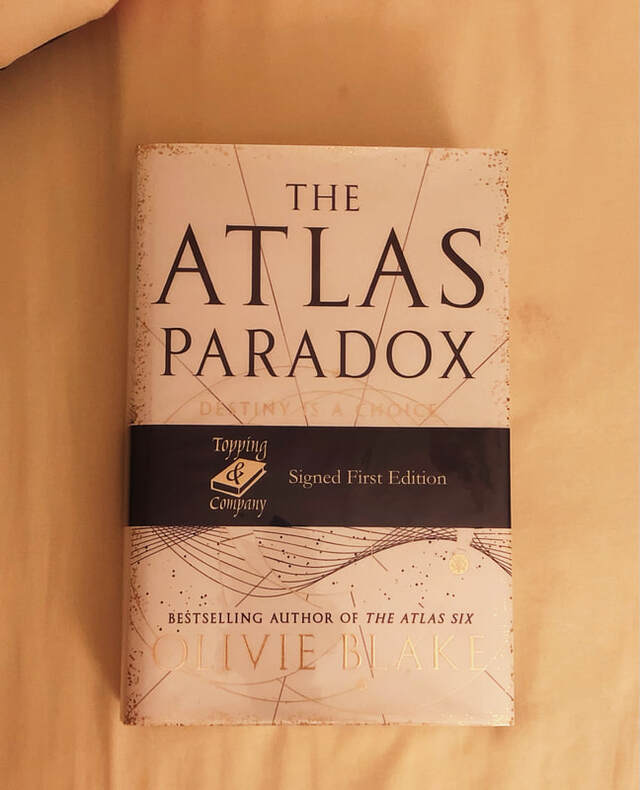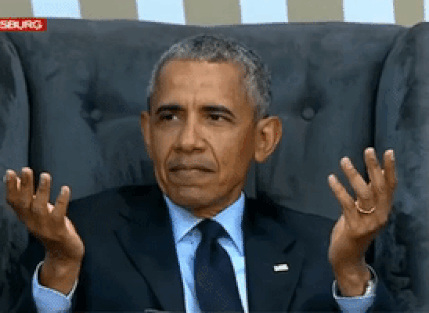The Atlas Paradox
Author: Olivie Blake
Published by: Pan Macmillan
Pages: 423
Format: Hardback
My Rating: ★★
Published by: Pan Macmillan
Pages: 423
Format: Hardback
My Rating: ★★
Alliances will be tested
Hearts will be broken
All must pick a side.
Six magicians were offered the opportunity of a lifetime.
Five are now members of the Society.
And two paths lie before them.
In this thrilling next instalment, the secret society of Alexandrians is unmasked. Its newest recruits realize the institute is capable of raw, world-changing power. It’s also headed by a man with plans to change life as we know it – and these are already under way. But the cost of this knowledge is as high as the price of power, and each initiate must choose which faction to follow.
Yet as events gather momentum and dangers multiply, which of their alliances will hold? Can friendships hold true and are enemies quite what they seem?
Hearts will be broken
All must pick a side.
Six magicians were offered the opportunity of a lifetime.
Five are now members of the Society.
And two paths lie before them.
In this thrilling next instalment, the secret society of Alexandrians is unmasked. Its newest recruits realize the institute is capable of raw, world-changing power. It’s also headed by a man with plans to change life as we know it – and these are already under way. But the cost of this knowledge is as high as the price of power, and each initiate must choose which faction to follow.
Yet as events gather momentum and dangers multiply, which of their alliances will hold? Can friendships hold true and are enemies quite what they seem?
My thoughts:
The Atlas Paradox by Olivie Blake is the second book in the Atlas Six Series.
I really loved the concept of the first book, and it left me with many unanswered questions, and I liked how this second book immediately ties in with the end of The Atlas Six.
The plot of this sequel is mainly focused on the characters’ various independent studies and experiments, drip feeding us information about what happened to Libby in the previous book.
In The Atlas Six, one of my favourite aspects of the story was the academic discussions between the candidates. It really felt as though Blake knew what she was talking about and that she was truly passionate about the issues discussed. I enjoy magic systems that are founded in science/ logic, but this book felt like it was being complex just for the sake of it. In this book, I struggled at times to even follow the new study topics introduced. There were just too many academic subjects, and not enough explanations about how they might be relevant to the action of the story. The hardback is around 400 pages long, with almost two thirds of the page count essentially acting as a guide of how powers work, but no real usage was seen throughout the plot. The book is far too long, and many of the chapters dragged for and failed to maintain my interest. Nothing happens. But, seriously, nothing happens.
Overall I think The Atlas Paradox suffered from something a lot of character-driven stories go through. With the first book, Olivie Blake managed to create an original blend of dark academia and fantasy, inventing a remarkable new magical system explored through the lens of philosophy and morality. The key strength of the first book was how the author was clearly developing the characters and their relationships with each other. It was easy to route for ands care about certain friendships and potential romantic entanglements. But here in the sequel, there’s an entire book of all those complex character links being separated for no good reason. You spend the entire book waiting for them to come back together. For what? What part of the plot does this serve? Frustratingly, most of their behaviour and their thoughts just didn't correlate to their characterisation in The Atlas Six.
It almost feels like this series was originally meant to be a duology but then got turned into a trilogy, which might explain why it comes across as filler content to me: it appears to be just a bridge to get to the third book. Really quite disappointed.
I’m not sure I’ll continue to the final part of the trilogy, but we’ll see…
Overall reaction:
The Atlas Paradox by Olivie Blake is the second book in the Atlas Six Series.
I really loved the concept of the first book, and it left me with many unanswered questions, and I liked how this second book immediately ties in with the end of The Atlas Six.
The plot of this sequel is mainly focused on the characters’ various independent studies and experiments, drip feeding us information about what happened to Libby in the previous book.
In The Atlas Six, one of my favourite aspects of the story was the academic discussions between the candidates. It really felt as though Blake knew what she was talking about and that she was truly passionate about the issues discussed. I enjoy magic systems that are founded in science/ logic, but this book felt like it was being complex just for the sake of it. In this book, I struggled at times to even follow the new study topics introduced. There were just too many academic subjects, and not enough explanations about how they might be relevant to the action of the story. The hardback is around 400 pages long, with almost two thirds of the page count essentially acting as a guide of how powers work, but no real usage was seen throughout the plot. The book is far too long, and many of the chapters dragged for and failed to maintain my interest. Nothing happens. But, seriously, nothing happens.
Overall I think The Atlas Paradox suffered from something a lot of character-driven stories go through. With the first book, Olivie Blake managed to create an original blend of dark academia and fantasy, inventing a remarkable new magical system explored through the lens of philosophy and morality. The key strength of the first book was how the author was clearly developing the characters and their relationships with each other. It was easy to route for ands care about certain friendships and potential romantic entanglements. But here in the sequel, there’s an entire book of all those complex character links being separated for no good reason. You spend the entire book waiting for them to come back together. For what? What part of the plot does this serve? Frustratingly, most of their behaviour and their thoughts just didn't correlate to their characterisation in The Atlas Six.
It almost feels like this series was originally meant to be a duology but then got turned into a trilogy, which might explain why it comes across as filler content to me: it appears to be just a bridge to get to the third book. Really quite disappointed.
I’m not sure I’ll continue to the final part of the trilogy, but we’ll see…
Overall reaction:


